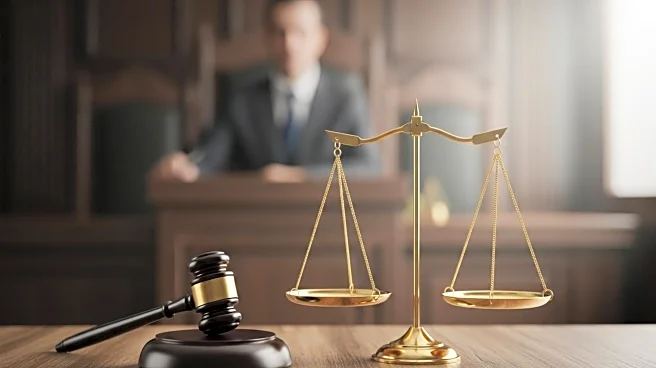What is the story about?
What's Happening?
The Supreme Court has declined to hear an appeal from Alex Jones, leaving in place a $1.4 billion judgment against him for defamation related to his false claims about the 2012 Sandy Hook Elementary School shooting. Jones, known for his conspiracy theories, had argued that the judgment was unfairly imposed without a trial. The decision upholds a lower court ruling that found Jones liable for defaming and causing emotional distress to the victims' families and an FBI agent involved in the case. The judgment includes $964 million in damages and an additional $473 million in punitive damages. Jones had filed for bankruptcy in 2022, claiming that the plaintiffs would not be able to collect the full amount.
Why It's Important?
This decision is significant as it reinforces the accountability of media figures for spreading false information that causes harm. The ruling serves as a precedent for similar defamation cases, emphasizing the legal consequences of disseminating conspiracy theories. The judgment against Jones highlights the potential financial repercussions for media personalities who engage in harmful rhetoric. It also underscores the importance of protecting victims' families from further distress caused by false claims. The case has broader implications for the media industry, particularly regarding the balance between free speech and the responsibility to avoid defamation.
What's Next?
Jones is appealing a separate $49 million judgment in Texas related to similar defamation claims. The liquidation of Infowars' assets is ongoing, with a Texas state court overseeing the process. The satirical news outlet The Onion had previously bid to acquire Infowars' assets, but the auction results were dismissed due to procedural issues. The court-appointed receiver will continue to manage the sale of Jones' assets to satisfy the judgments. Jones' legal battles are likely to continue as he seeks to protect his remaining assets and influence.
Beyond the Headlines
The case raises ethical questions about the role of media in shaping public perception and the impact of misinformation on society. It highlights the challenges in regulating media content while preserving freedom of expression. The judgment against Jones may deter other media figures from engaging in similar behavior, potentially leading to a shift in how controversial topics are covered. The case also reflects the growing legal scrutiny of conspiracy theories and their impact on public discourse.















